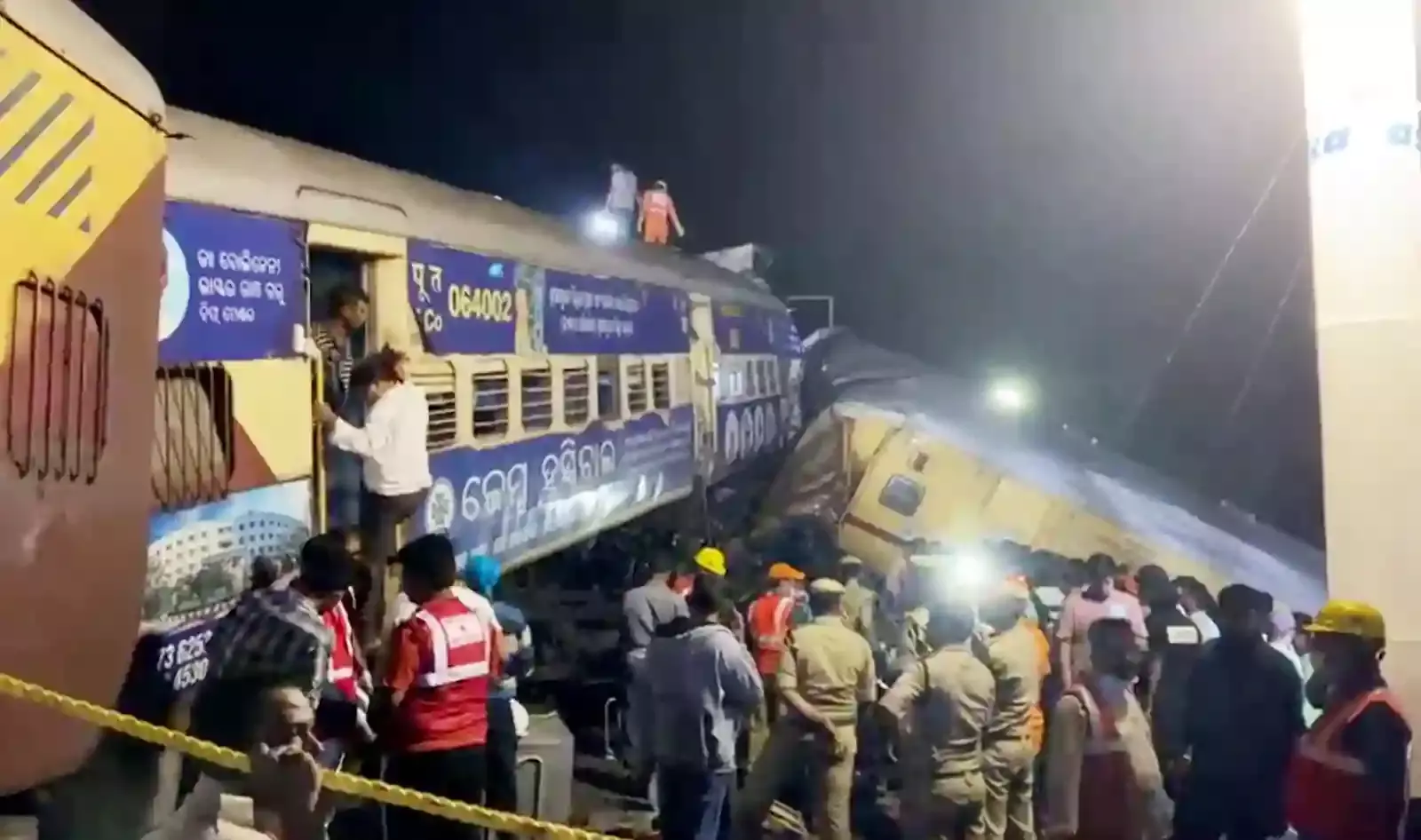Pull the Chain on Train Accidents
Railways are the heart of our country

The recent train accident that took place in Vizianagaram adds to a string of multiple train mishaps. India suffered 17,993 railway accidents in 2021, resulting in 16,431 deaths. This is the latest data from the annual 'Accidental Deaths and Suicides in India' report released by the NCRB. It means that on average, the country reported 49 railway accidents every day, causing at least 45 deaths. Even if all the deaths weren’t recorded on the ‘track’, they happened due to various reasons. Unmanned crossings, sabotaged tracks, platform mishaps, budget cuts and other casualties.
This year itself, fire broke out on four running trains. In a freak accident, one train even managed to arrive on the platform with a bang! I mean literally, as it got derailed and actually climbed onto the platform, much to everyone’s surprise. It stopped only after colliding with an electric pole, literally ‘shocking’ one woman. Luckily there were no causalties.
Then there was the story about the boy who stopped the train. At one location where the soil and pebbles were washed away by the rain, Mursalin Seikh, the son of a migrant labourer at a nearby village, acted sensibly and alerted the loco pilot of an approaching passenger train by waving his red shirt. The Railways, trying to be economical with the truth, maintained that there were workers on the track as well, when in fact no one was around. That child halted the train all by himself, with seven local people cheering him on. If they hadn’t been there, it could have been a massive disaster. And what did he get for this act of bravery? A cash award of Rs 1,500, a meagre sum that sparked widespread criticism from various quarters.
Anyway, the point is that out of the multiple questions that arise out of these totally avoidable man made calamities, the million dollar question of who is responsible should not be side tracked. Even if the media is silent, it is our duty to keep on asking until we get the answers. Was it a human or technical error? If so, why is the focus more elsewhere and not on interlocking systems and track upgrades? Why is the ‘Kavach’ which is a great Indian development, and one that was launched with great fanfare, not fast tracked and applied on every train? If these are systematic failures, why is there not more focus for application of tracks and its renewal? And if it was the interlocking and signalling safety, why is the digital system not being maintained? If these were human errors, then why are the vacancies not being filled? Why the decline in experienced staffers? Surely these are risks we simply cannot afford to take.
If the Army is the antibody that acts as defence against foreign mechanisms, the Railways is the heart of our country. And the trains are the enormous arteries and veins that carry the common blood of our nations to and fro. This is one amazing affordable horizontal ladder that people daily climb and head to various destinations. Railways is the vehicle of the common man, not the elite. The impressive Vande Bharats and the ones being flagged off at regular intervals are targeted at the elite who can afford to wear shoes and boots. These are not meant for the one who boards them with a hawai chappal. Doesn’t it therefore make sense that the first and foremost duty should be to see to the safety and security of tracks before concentrating on high speed trains and swanky stations? Even if such mundane measures don’t have a visibility or an opportunity for photo ops, no amount of Bullet trains can run on fractured tracks and ill-maintained signalling systems.
There are two types of disasters. Natural and man-made. Both have a major impact on society but the major difference is that even though some of our activities have an influence on ecological calamities, we have no absolute control over nature. However, all man-made disasters can be easily prevented, because every single act that leads to any kind of a catastrophe, is only our creation. We have only ourselves to blame. But if every citizen, every bureaucrat, and every leader is responsible, not careless; compassionate, not callous; aware not apathetic, upright not corrupt; and if everyone did their duty out of need, not greed; then there would be no war, no crime, no arson, no terrorism, no hazardous spills, no explosions, no chemical or biological attacks. There would be no sinking Titanics. No plane crashes. And definitely no more train accidents.
As the saying goes, neither a wise man nor a brave man lies down on the tracks of history to wait for the train of the future to run over him. If you board the wrong train, there is also no use running along its corridor or trying to jump off it. Instead, be brave enough to pull the chain, get off of it and walk back to the station. And wait for the right train to board. One that will take you to your destination. And instead of being safety blinded, it’s time we become more safety minded.


